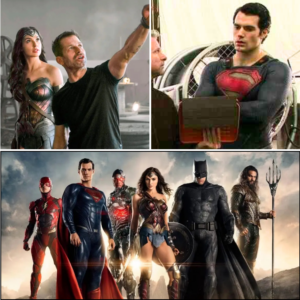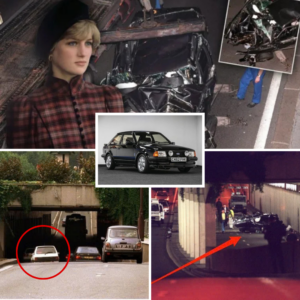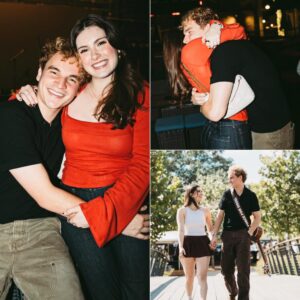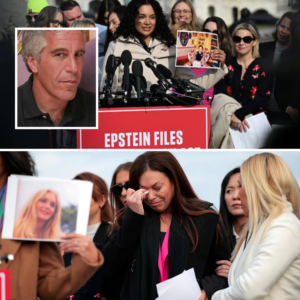Henry Cavill’s portrayal of Geralt of Rivia in Netflix’s The Witcher has cemented his status as a Hollywood icon, bringing to life a character beloved by fans of Andrzej Sapkowski’s novels and CD Projekt Red’s video games. His commitment to the role—marked by intense physical training, mastering swordplay, and embodying Geralt’s stoic demeanor—earned him universal praise. However, a lesser-known story from the set of The Witcher reveals the extreme lengths Cavill went to for authenticity, nearly costing him his vision. During filming, prolonged use of contact lenses caused severe eye damage, pushing the actor to the brink of blindness. This account, inspired by reports from the set, explores Cavill’s harrowing experience, his unwavering dedication, and the risks he faced to deliver a flawless Geralt, offering fans a deeper appreciation of his sacrifice.
A Vision of Geralt, Literally and Figuratively
When The Witcher premiered on December 20, 2019, it became an instant global phenomenon, surpassing Disney’s The Mandalorian to claim the title of 2019’s most-watched series, according to Parrot Analytics. Cavill’s Geralt was the heart of the show, his silver hair, amber eyes, and gravelly voice capturing the essence of the monster hunter from Sapkowski’s novels. The amber eyes, a hallmark of witchers due to their mutations, were achieved through custom contact lenses, a detail Cavill insisted on for authenticity. Unlike CGI, which Netflix considered for budget reasons, Cavill opted for lenses to ensure Geralt’s eyes felt real, even in close-ups. “I wanted every detail to be perfect,” he said in a later interview, reflecting his passion as a longtime fan of the Witcher franchise, having played The Witcher 3: Wild Hunt multiple times and read the novels to prepare.
However, the lenses, designed to mimic the cat-like glow of a witcher’s eyes, came with risks. Cavill was warned by the production’s optometrist to limit wear to three hours at a time to prevent oxygen deprivation to his corneas. On a typical day, this was manageable, with breaks built into the schedule for makeup touch-ups and costume changes. But the chaotic conditions of filming in the Canary Islands, where dusty, wind-swept locations stood in for the Continent’s rugged landscapes, turned this precaution into a dangerous oversight. As Cavill recounted in a 2020 interview with Metro, the combination of extended lens wear and environmental hazards pushed his eyes to their limits, nearly resulting in permanent damage.
A Dust-Storm Disaster
Filming The Witcher was grueling, with Cavill performing his own stunts, wielding swords in choreographed battles, and enduring long hours in heavy armor. The Canary Islands shoot, used for scenes depicting Geralt’s monster-hunting exploits, presented unique challenges. The volcanic terrain, while visually stunning, was a hotbed of fine dust and ash, whipped into the air by relentless winds. Cavill, fully immersed in his role, often ignored the three-hour lens limit, prioritizing the flow of production over personal comfort. “You’re in the moment, trying to get the shot right,” he explained. “You don’t want to stop the entire crew because of something like lenses.”
During one particularly intense day, Cavill wore the lenses for nearly an entire shift—well beyond the recommended time. Dust particles, carried by the wind, slipped beneath the lenses, adhering to his eyes. Unbeknownst to him, the abrasive particles were scratching his corneas with every blink, causing micro-abrasions that grew increasingly painful. Initially, he dismissed the discomfort as fatigue or irritation from the environment, a common issue on outdoor sets. But as the day wore on, the pain intensified, his vision blurred, and his eyes became excruciatingly sensitive to light. By the time he sought help, the damage was severe. “It felt like my eyes were being sandpapered,” he later told Metro. The set’s optometrist, alarmed by his condition, intervened immediately, warning that continued neglect could lead to permanent blindness.
A Brush with Blindness
The optometrist’s diagnosis was grim: Cavill’s corneas had sustained significant abrasions, compromising their ability to function properly. Without prompt treatment, the damage could scar, impairing his vision permanently. Production halted as Cavill was rushed for medical attention, his eyes treated with medicated drops and a strict regimen of rest. For days, he was confined to darkness, unable to tolerate light, a stark contrast to the fearless witcher he portrayed. “It was terrifying,” he admitted, reflecting on the fear of losing his sight, a devastating prospect for an actor whose career relies on visual performance.
The incident underscored the physical toll of Cavill’s commitment. Beyond the lenses, he endured other challenges on set. His muscular physique, honed through rigorous training, tore through costumes, with bicep-heavy armor ripping during action scenes, as costume designer Tim Aslam noted in a Polygon interview. Cavill also suffered a hamstring injury during Season 2, which nearly sidelined his action-star career, as he revealed to IGN. Yet, the eye injury was uniquely harrowing, a reminder that even seemingly minor details—like contact lenses—could pose life-altering risks. Fortunately, the optometrist’s swift action and Cavill’s adherence to recovery protocols prevented lasting damage, allowing him to return to set with heightened caution.
A Fan’s Dedication, Tested by Fire
Cavill’s ordeal was no surprise to those who knew his passion for The Witcher. A self-professed “nerd,” he immersed himself in the franchise long before Netflix’s adaptation. He played The Witcher 3 on its hardest difficulty, Death March, and read Sapkowski’s novels to understand Geralt’s psyche, as he shared in a GQ interview. When Netflix announced the series, Cavill relentlessly pursued the role, calling the studio daily despite no script existing, a persistence that initially annoyed showrunner Lauren Schmidt Hissrich, per genk.vn. His dedication paid off, with Sapkowski himself praising Cavill’s portrayal as “perfect,” likening it to Viggo Mortensen’s iconic Aragorn.
This passion drove Cavill to push boundaries on set. He performed all his stunts, using rubber swords for safety in one-shot fight scenes, as he explained to genk.vn. He even wanted to grow and dye his hair silver for Geralt’s iconic look, though Netflix opted for a wig after months of testing to avoid lighting issues. Cavill’s insistence on authenticity extended to his voice, mimicking Doug Cockle’s game performance to deliver Geralt’s signature gravelly tone, a choice fans lauded as “spot-on.” But this same zeal led to the lens incident, as Cavill prioritized the character over his own safety, a decision he later acknowledged as reckless.
The Cost of Authenticity
The eye injury wasn’t Cavill’s only sacrifice. His commitment to staying true to Sapkowski’s novels sparked tensions with the writing team, who favored creative liberties. Reports from genk.vn reveal that during Season 2, Cavill’s push for fidelity to the source material caused friction, with some writers mocking the novels. This clash nearly cost him the role, as producers felt his “resistance” disrupted their vision. Yet, fans celebrated Cavill’s loyalty, seeing him as Geralt’s ultimate advocate. His departure after Season 3, announced in 2022, left fans devastated, with many citing his commitment to the source material as a reason for the split.
Cavill’s physical sacrifices also took a toll. Earning $400,000 per episode in Season 1 and $1 million in Season 2, per The Hollywood Reporter, he poured every ounce of energy into the role. From tearing costumes to battling injuries, he embodied Geralt’s rugged endurance. The lens incident, however, was a wake-up call, forcing him to balance dedication with self-preservation. “I learned my lesson,” he told Metro, vowing to heed medical advice in the future.
A Legacy Beyond the Lens
Cavill’s near-blinding experience didn’t diminish his impact on The Witcher. His performance, lauded by fans and Sapkowski alike, elevated the series into a cultural juggernaut, spawning spin-offs like The Witcher: Blood Origin and an animated film, Nightmare of the Wolf. The show’s success boosted sales of Sapkowski’s novels and CD Projekt Red’s games, with The Witcher 3 seeing a player surge post-premiere. Cavill’s Geralt became a benchmark, his amber eyes—ironically the source of his ordeal—etched into pop culture.
When Liam Hemsworth took over as Geralt in Season 4, set for 2025, fans struggled to imagine anyone else in the role. Images of Hemsworth on set, recreating Cavill’s iconic fight with Vilgefortz, felt like an attempt to erase Cavill’s legacy, as genk.vn noted. Yet, Cavill’s sacrifices—his pain, his passion—ensured Geralt’s immortality. “He was Geralt in every way,” one fan wrote on X, echoing the sentiment of millions.
A Hero’s Resolve
Henry Cavill’s journey on The Witcher is a testament to the blurred line between passion and peril. His near-blinding ordeal, caused by dust-laden lenses and relentless dedication, reveals the human cost behind a superhuman performance. From tearing costumes to clashing with writers, Cavill gave everything to embody Geralt, risking his health and career. His story is a cautionary tale but also an inspiring one, showing how far one man would go for a role he loved.
As fans await The Witcher’s future, Cavill’s legacy endures—not just in Geralt’s amber eyes but in the heart he poured into every scene. His ordeal reminds us that behind every iconic character lies an actor willing to face the abyss, proving that true heroism, on-screen or off, comes at a price.




